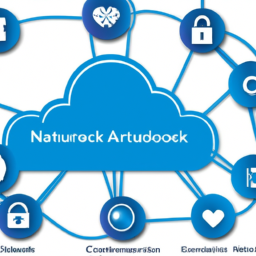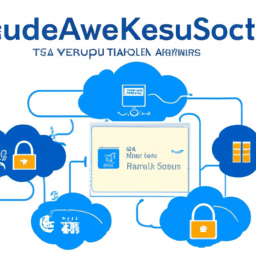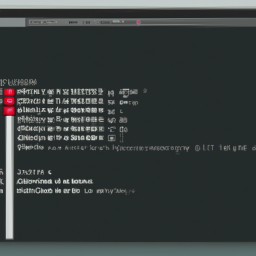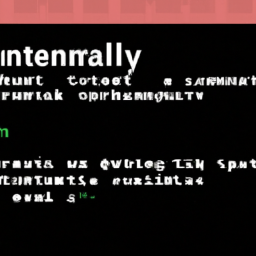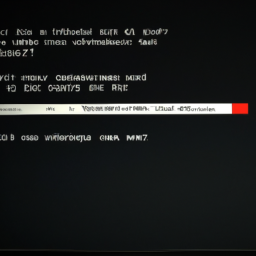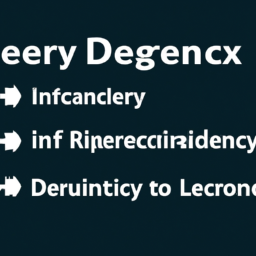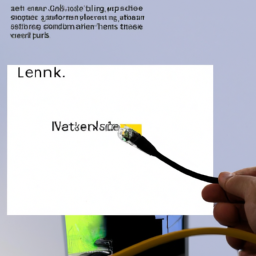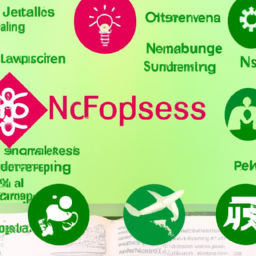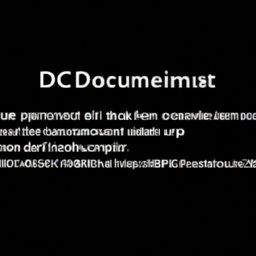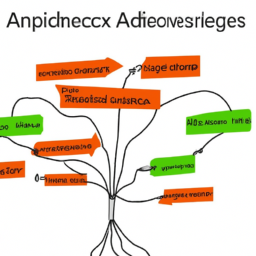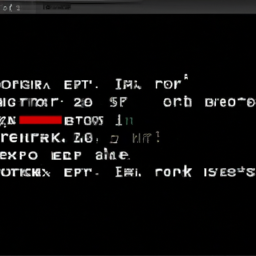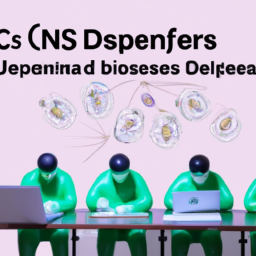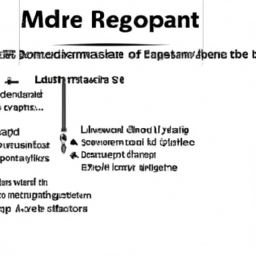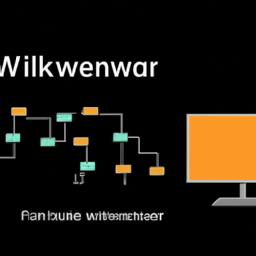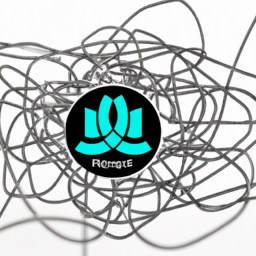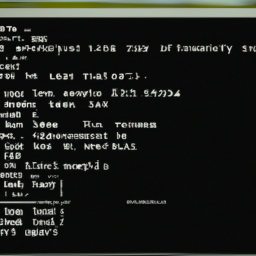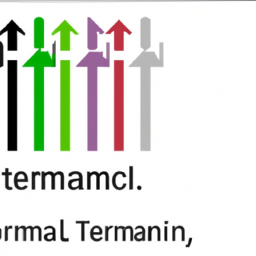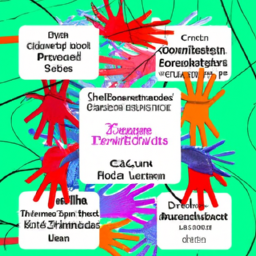Are you ready to unlock the secrets of becoming a certified Kubernetes and Cloud Native Security Associate? Prepare to embark on a journey that will unveil a world of possibilities and open doors to countless career opportunities.
This article will serve as your guide, revealing the hidden knowledge and expertise required to excel in this field.
Get ready to dive deep into the fundamentals of Kubernetes and Cloud Native Security, building a solid foundation for your certification exam. From there, you will master the intricate aspects of Kubernetes security, gaining the skills needed to protect and defend against potential threats.
But it doesn’t stop there. We will also explore the best practices for Cloud Native Security, equipping you with the tools and strategies necessary to ensure the safety and integrity of your cloud-based applications.
Theory alone is not enough. That’s why we emphasize the importance of hands-on experience, allowing you to put your knowledge into practice and truly understand the intricacies of this field.
Becoming a certified Kubernetes and Cloud Native Security Associate is your ticket to a thriving career in the ever-evolving world of technology. So, buckle up and get ready to uncover the secrets that will propel your professional journey to new heights.
Key Takeaways
- Certified Kubernetes and Cloud Native Security Associate unlocks career opportunities
- Certification exam is important for career advancement
- Higher earning potential is possible with certification in Kubernetes and Cloud Native Security
- Certified professionals contribute to the security of cloud-native architectures and safeguard sensitive data
Understanding the Basics of Kubernetes and Cloud Native Security
Get ready to dive into the exciting world of Kubernetes and cloud native security. You’ll uncover the fundamental principles and concepts that are essential for understanding this cutting-edge field.
In order to grasp the basics of containerization, it’s crucial to comprehend the core concepts of Kubernetes. Kubernetes is an open-source container orchestration platform that enables the deployment, scaling, and management of containerized applications. By understanding the workings of Kubernetes, you’ll gain insights into how containers are created, scheduled, and networked within a cluster.
Additionally, securing cloud infrastructure is of paramount importance in the world of Kubernetes and cloud native security. You’ll learn about securing Kubernetes clusters, implementing access controls, and protecting sensitive data within a cloud-native environment.
With a solid foundation in the basics of Kubernetes and cloud native security, you’ll be well-prepared to tackle the certification exam and advance your career in this exciting field.
Preparing for the Certification Exam
Explore how to best prepare for the certification exam and discover the truth behind effective strategies to evoke emotions in the audience. To ensure success in the exam, it’s crucial to have a solid exam preparation plan in place. Here are four key steps to follow:
-
Familiarize yourself with the exam objectives: Understand what topics and skills will be assessed in the exam. This will help you focus your study efforts on the right areas.
-
Use official study materials: Utilize the recommended study materials provided by the certification authority. This’ll ensure that you have access to accurate and relevant content.
-
Hands-on practice: Kubernetes and cloud native security is a practical skill, so it’s essential to gain hands-on experience. Set up a lab environment and practice implementing security measures.
-
Take practice exams: Practice exams can help you assess your readiness and identify any knowledge gaps. They also provide a simulation of the actual exam experience.
Once you’ve mastered the art of exam preparation, you’ll be ready to dive into the next section about mastering Kubernetes security.
Mastering Kubernetes Security
To master Kubernetes security, you need to understand the key points of securing Kubernetes clusters. This involves ensuring that all components are properly configured, including the control plane, worker nodes, and network.
Implementing access controls and authentication is crucial. It allows you to control who has access to the cluster and ensures that only authorized users can perform actions.
Lastly, monitoring and auditing Kubernetes environments allows you to detect and respond to any security incidents. It also helps track and review activity within the cluster.
Remember, mastering Kubernetes security requires a comprehensive understanding of securing clusters, implementing access controls, and monitoring and auditing environments.
Securing Kubernetes Clusters
Securing Kubernetes clusters is essential for protecting your applications and data in the cloud. To ensure the security of your cluster, you need to focus on two key areas: hardening containerized applications and securing container registries.
Firstly, hardening containerized applications involves implementing security measures to protect against potential vulnerabilities. This includes regular patching, restricting unnecessary privileges, and scanning container images for known vulnerabilities before deployment.
Secondly, securing container registries is crucial to prevent unauthorized access and tampering of container images. This can be achieved by using strong authentication mechanisms, implementing access controls, and regularly scanning the registry for any signs of compromise.
By addressing these areas, you can enhance the overall security posture of your Kubernetes clusters. Moving forward, implementing access controls and authentication will further strengthen your cluster’s security and protect against unauthorized access.
Implementing Access Controls and Authentication
Take a deep dive into fortifying your Kubernetes clusters by implementing robust access controls and authentication measures. These measures act like impenetrable gates protecting your valuable data and applications.
Access controls ensure that only authorized users or processes can interact with your cluster’s resources, preventing unauthorized access and potential security breaches. Kubernetes provides various mechanisms for access control, such as Role-Based Access Control (RBAC). RBAC allows you to define granular permissions based on roles and responsibilities.
Authentication ensures that users are who they claim to be before granting them access to the cluster. Kubernetes supports multiple authentication methods, including certificates, tokens, and external identity providers.
By implementing strong access controls and authentication measures, you can significantly enhance the security of your Kubernetes clusters. Moving forward, let’s explore how to monitor and audit Kubernetes environments to ensure ongoing security.
Monitoring and Auditing Kubernetes Environments
Ensure the ongoing security of your Kubernetes clusters by closely monitoring and auditing the environments, giving you complete visibility and control over any potential security threats. Continuous monitoring is essential to detect any unauthorized activities or vulnerabilities in your Kubernetes environment.
By implementing a robust monitoring system, you can proactively identify and respond to any security incidents, ensuring the integrity and availability of your clusters. Additionally, vulnerability scanning plays a crucial role in identifying any weaknesses or misconfigurations in your Kubernetes setup.
Regularly scanning your clusters for vulnerabilities allows you to address them promptly and reduce the risk of exploitation.
As we move on to exploring cloud native security best practices, it is important to have a strong foundation of monitoring and auditing in place to ensure the overall security of your Kubernetes and cloud native environments.
Exploring Cloud Native Security Best Practices
Discover the key principles behind cloud native security best practices and visualize how they can be implemented in your own environment. Cloud native security focuses on protecting containerized applications and the underlying infrastructure from potential threats. By adopting container security and vulnerability management practices, you can ensure the integrity and confidentiality of your cloud native environment.
To help you understand the best practices, refer to the table below:
| Principle | Description | Implementation |
|---|---|---|
| Secure Container Images | Ensure that container images are scanned for vulnerabilities before deployment. | Utilize container scanning tools to identify and remediate vulnerabilities. |
| Secure Configuration Management | Create and enforce secure configuration policies for your containers and orchestration platform. | Use configuration management tools to automate the enforcement of secure settings. |
| Secure Communication | Encrypt communication channels between containers and external services. | Implement Transport Layer Security (TLS) and mutual authentication for secure communication. |
| Continuous Monitoring and Auditing | Monitor and audit your cloud native environment for any suspicious activities. | Utilize monitoring and auditing tools to detect and respond to security incidents. |
By following these cloud native security best practices, you can enhance the security posture of your Kubernetes environment. In the next section, we will explore how to gain hands-on experience in implementing these practices.
Getting Hands-On Experience
Try out hands-on exercises to gain practical experience in implementing cloud native security best practices in your own environment. These practical exercises will allow you to apply the knowledge you’ve gained and put it into action.
By simulating real-world scenarios, you’ll be able to identify vulnerabilities, implement security controls, and mitigate risks effectively. Through these exercises, you’ll learn how to secure Kubernetes clusters, protect containerized applications, and implement access controls for cloud-native environments.
This hands-on experience will not only deepen your understanding of cloud native security but also provide you with the confidence to handle security challenges in a real-world setting. By gaining practical experience, you’ll be better equipped to advance your career as a certified Kubernetes and Cloud Native Security Associate, ready to take on the complex security demands of modern cloud-native architectures.
Advancing Your Career as a Certified Kubernetes and Cloud Native Security Associate
To truly enhance your professional trajectory in the ever-evolving realm of cloud-native architectures, it is imperative that you embrace the invaluable opportunity to become a certified expert in Kubernetes and Cloud Native Security, enabling you to confidently tackle multifaceted security challenges and propel your career to new heights. Achieving certification as a Kubernetes and Cloud Native Security Associate offers numerous benefits for advancing your career. Not only does it validate your expertise in securing cloud-native environments, but it also demonstrates your commitment to staying updated with the latest industry standards and best practices. With this certification, you gain a competitive edge in the job market, opening doors to exciting career opportunities and higher earning potential. Additionally, becoming a certified professional in this field allows you to contribute to the security of cloud-native architectures, safeguarding sensitive data and ensuring the integrity of enterprise systems. Don’t miss out on the chance to elevate your career and make a significant impact in the world of cloud-native security.
| Certification Benefits | |||
|---|---|---|---|
| Validation of expertise | Competitive edge in job market | ||
| Commitment to industry standards | Exciting career opportunities | ||
| Higher earning potential | Contribution to data security | Increased job satisfaction and personal growth |
Frequently Asked Questions
What are the prerequisites for taking the Certified Kubernetes and Cloud Native Security Associate certification exam?
To take the certified Kubernetes and Cloud Native Security Associate certification exam, there are a few prerequisites you need to meet.
Firstly, you should have a basic understanding of cloud computing and Kubernetes architecture.
Additionally, it’s recommended that you have knowledge of programming languages such as Python, Go, and JavaScript, as these are commonly used in Kubernetes security.
By fulfilling these requirements, you’ll be well-prepared to tackle the certification exam.
Are there any specific programming languages or frameworks that I need to be familiar with in order to excel in Kubernetes security?
To excel in Kubernetes security, it’s recommended to have knowledge of specific programming languages like Python and Go, as they’re commonly used in Kubernetes development. Familiarity with frameworks like Kubernetes APIs, Helm, and Prometheus can also be beneficial.
These frameworks help in managing and securing Kubernetes clusters effectively. Additionally, understanding containerization technologies like Docker and container orchestration tools like Kubernetes itself is essential for mastering Kubernetes security.
Can I take the Certified Kubernetes and Cloud Native Security Associate certification exam remotely, or do I have to visit a physical testing center?
Yes, you can take the Certified Kubernetes and Cloud Native Security Associate certification exam remotely. There are exam centers available for Kubernetes certification, but remote testing is also an option. This allows you to take the exam from the comfort of your own location, eliminating the need to visit a physical testing center.
Remote testing provides convenience and flexibility for candidates, ensuring they can pursue certification without any geographical constraints.
Are there any resources or study materials available to help me prepare for the certification exam?
To prepare for the certification exam, you’ll find a variety of study materials and exam preparation resources available. These resources cover all the necessary topics and provide in-depth knowledge to help you succeed.
Study guides, practice tests, online courses, and official documentation are just a few examples. By utilizing these resources, you can enhance your understanding and readiness for the exam.
What is the validity period of the Certified Kubernetes and Cloud Native Security Associate certification? Do I need to renew it periodically?
The validity period of the Certified Kubernetes and Cloud Native Security Associate certification is two years. To maintain the certification, you’ll need to renew it periodically by passing the current version of the certification exam.
This ensures that your knowledge and skills remain up-to-date with the latest industry standards and best practices in Kubernetes and cloud native security.
Conclusion
Congratulations on completing this article about becoming a Certified Kubernetes and Cloud Native Security Associate!
By understanding the basics of Kubernetes and Cloud Native Security, preparing for the certification exam, mastering Kubernetes security, exploring best practices, and gaining hands-on experience, you’ve taken important steps towards advancing your career in this field.
Remember, "Knowledge is power," and with your newfound expertise, you’re well-equipped to tackle the challenges of securing Kubernetes and cloud native environments.
Keep learning, growing, and embracing new opportunities!





